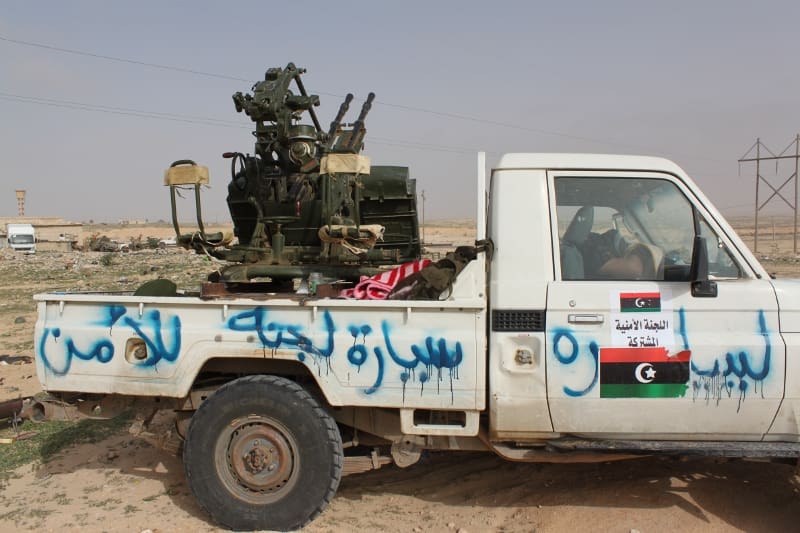“We have now a non-international armed conflict, or what you would call civil war,” Jakob Kellenberger, President of the ICRC, told a news conference today.
The declaration follows last week’s UN Security Council resolution, which called on Libya to adhere to International Humanitarian Law (IHL) – the legal term for laws of war – a statement which implies that the Council already assumed an armed conflict was underway in Libya. That was the same resolution in which the Council referred to crimes against humanity and asked the prosecutor of the International Criminal Court (ICC) to investigate .
While the ICRC statement tells us what has been apparent for some time now, it sets down a marker for subsequent prosecutions of commanders on both sides of the conflict in Libya and for any forces that might intervene. What started out as a violent crack-down on peaceful demonstrators has morphed quickly into irregular armed combat and the declaration of a liberated zone in the east of the country. France today recognized the opposition council based in the eastern city of Benghazi as the sole legitimate representative of the Libyan people, and Portugal cut its ties to Ghaddafi’s government, adding official weight (what international lawyers call ‘state practice’) to the notion of a country at war with itself.
In effect, both sides have now been put on notice that the laws of war which govern non-international armed conflict now apply, in particular the Article 3, common to all for Geneva conventions. In effect, that notice expands the kinds of charges that can be brought against alleged perpetrators by the ICC prosecutor (or prosecutors from countries with some form of extra-territorial jurisdiction for war crimes).
The laws governing crimes against humanity and crimes committed during war (there is overlap here) prohibit deliberate attacks against civilians, but under the laws of war (IHL) these do not need to rise to the level of being “widespread or systematic”, as is the case under the laws governing crimes against humanity. Here’s the list of common Article 3 crimes:
Article 3
In the case of armed conflict not of an international character occurring in the territory of one of the High Contracting Parties, each Party to the conflict shall be bound to apply, as a minimum, the following provisions:
1. Persons taking no active part in the hostilities, including members of armed forces who have laid down their arms and those placed ‘’hors de combat” by sickness, wounds, detention, or any other cause, shall in all circumstances be treated humanely, without any adverse distinction founded on race, colour, religion or faith, sex, birth or wealth, or any other similar criteria.
To this end, the following acts are and shall remain prohibited at any time and in any place whatsoever with respect to the above-mentioned persons:
(a) violence to life and person, in particular murder of all kinds, mutilation, cruel treatment and torture;
(b) taking of hostages;
(c) outrages upon personal dignity, in particular humiliating and degrading treatment;
(d) the passing of sentences and the carrying out of executions without previous judgment pronounced by a regularly constituted court, affording all the judicial guarantees which are recognized as indispensable by civilized peoples.
